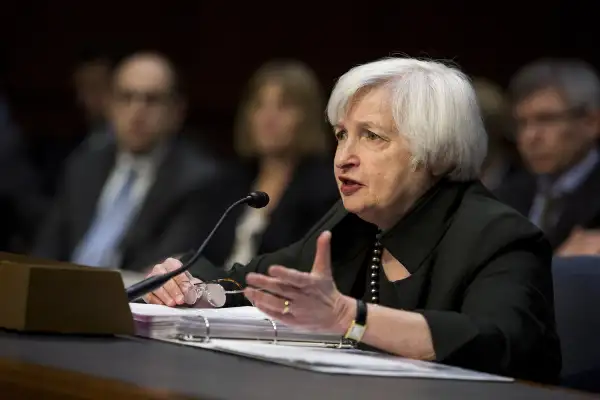Why the Fed Is All But Certain to Raise Interest Rates Now
Money is not a client of any investment adviser featured on this page. The information provided on this page is for educational purposes only and is not intended as investment advice. Money does not offer advisory services.

On Friday morning, the Labor Department reported that the U.S. economy produced 211,000 jobs in November and that the nation's unemployment rate held steady at a respectable 5%. Not only were the job-creation figures above the 197,000 jobs that economists had been expecting, but the government also revised prior numbers to show that even more jobs were created in September and October than was previously thought.
This sets the stage for a long-anticipated move by the Fed to raise interest rates next month for the first time in nearly a decade.
That's because Friday's Labor Department report confirmed the carefully crafted narrative that Yellen has been trying to sell in recent weeks—that the economy is on solid enough footing for the Federal Reserve to begin lifting short-term interest rates as soon as December.
In a speech earlier this week, Yellen all but showed her hand, arguing that if the Fed waits too long to raise rates, it may not be able to do so as gradually as central bankers want. She warned that "an abrupt tightening would risk disrupting financial markets and perhaps even inadvertently push the economy into recession."
No wonder the financial markets were signaling a 75% probability of a December rate hike.
Now it seems almost certain that the Fed will raise rates—most likely by a quarter of a percentage point—when the Federal Open Market Committee meets as scheduled on Dec. 15 and 16.
The Dow Jones industrial average rose nearly 200 points in early morning trading Friday, after falling more than 250 points on Thursday.
Thursday's drop came in response to a perceived policy misstep by the Fed's counterparts on the Continent, the European Central Bank.
The ECB announced a new round of stimulus to try to goose the European economy. But in doing so, ECB president Mario Draghi fell short of market expectations. For instance, while the ECB extended its bond-buying program to lower market interest rates, it did not increase the size of that initiative as investors had been expecting.
So won't investors react negatively if the Fed ends its stimulative ways?
Based on the bullish reaction to the better-than-expected jobs report, apparently not.
In the U.S., investors have been bracing for a rate hike for years and have simply grown weary of the debate about when the Fed should raise interest rates. As Sam Stovall, U.S. equity strategist for S&P Capital IQ put it: "Not only does Fed Chair Yellen look forward to the start of what she calls the normalization process, but so too do investors and journalists who are tired of this never-ending speculation."
If today's jobs report puts an end to this speculation, the bulls would be pleased.
